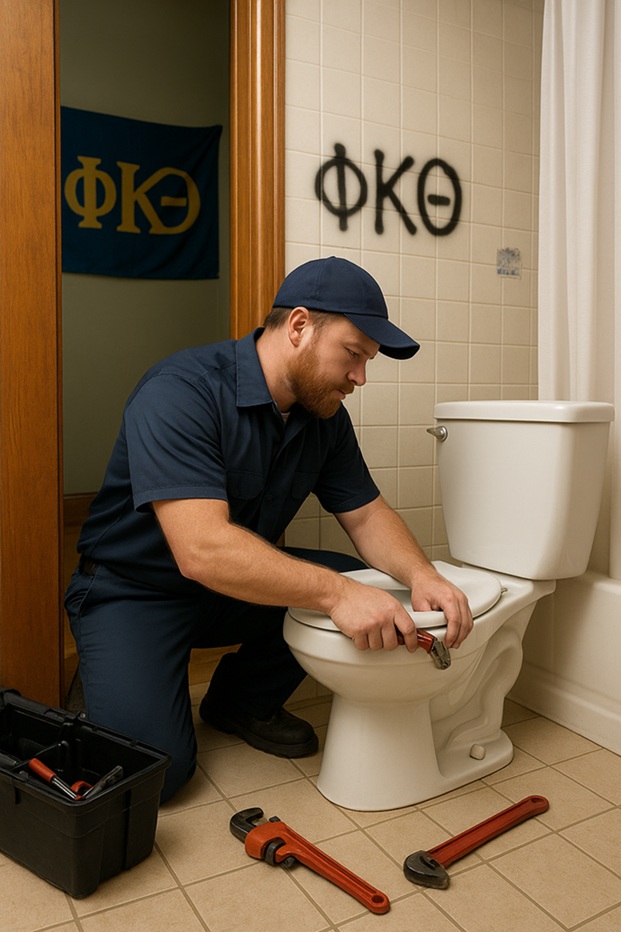I’m a big fan of education and I have a confession to make.
I went to a Tier 1 Party School. You know the type, a university that regularly makes the Top 10 “Most Fun” lists, where the weekends start on Thursdays, the Greek life hums like a beehive and tailgating is practically a sport unto itself. We’re talking about a state university that routinely ranks in the top handful of America’s wildest campuses. If I’d been looking for the holy trinity of sex, drugs and rock and roll, I wouldn’t have had to look far.
In fact, my junior-year roommate was a rock and roll star, the frontman of a student band that never had trouble booking paying gigs. They were good and they were busy. Loud, talented and far too confident for 20-year-olds who thought “practice” meant “after the party”.
But here’s the real confession, the one that matters. I also went to a Tier 1 Research University, a place that didn’t just hand out diplomas. It handed out perspective.
Behind the noise and the neon, there were brilliant minds at work. Professors who didn’t just ask us to repeat century-old experiments by Nobel laureates — they asked us to design our own. They didn’t want us parroting back the answers from the book. They wanted us writing the next chapter. We were told to push the envelope, even if it exploded in our faces. And sometimes it did.
It was glorious. We were wrestling with questions that hadn’t been answered yet. Our professors didn’t just teach us to pass a test. They forced us to take the steps to get to the cutting edge of research, to solve the problems and to invent the answers. I learned how to think and in retrospect, it was invaluable.

The Reality Check
Of course, not everyone thrived. Some of my classmates didn’t take things seriously and faltered. One bad semester earned you a warning. Two bad semesters earned you a sabbatical, the kind where have to go “find yourself”. Not everyone came back after that and of those who did, many still did not thrive.
I managed to keep my footing, but not without casualties. I earned the dubious nickname of “the engineer killer”. Over the first three years, I had roommates majoring in computer, electrical and mechanical engineering. Two switched to business. One became a psychology major. By my senior year, the only person left brave enough to share an apartment with me was my girlfriend. That worked out fine. We both graduated, just six months apart, but our paths afterwards took us in different directions.
The Laboratory of Life
It took me a few years to fully appreciate what college gave me. It was an amazing experience. Graduate school sharpened it, but corporate life dulled it a bit, not because I don’t love my work — I do — but because the world of “deliverables” rarely lets you pause and ask, “What if…?” Explosions of mistakes are treated differently in the corporate world.
In the university lab, I was allowed to wonder. To tinker. To chase curiosity just to see where it went. That’s not just science. That’s the essence of learning.

The Great Education Debate
Today, the value of higher education is constantly debated. You hear the truism: “You can get a liberal arts degree and make five figures or become a master plumber and make six.” I can’t argue with the merit of a skilled trade and I must admit that a diploma is not a guarantee of a high salary. Rolling in cash comes from something different — a drive that is inside you, a desire to be bigger. What’s important to remember is that we need both philosophers and plumbers.
But let’s not pretend the value of higher education can be measured purely in dollars. Education isn’t about instant wealth. It’s about the compound interest on your potential.
What separates the person with a degree isn’t just knowledge. It’s the trained curiosity, the resilience after failure, the ability to connect dots no one else even sees.
So yes, a good plumber may earn more than a philosophy major, but both can build, fix and understand the world in ways that matter. And statistically speaking, higher education still opens more doors and expands more horizons than almost any other path.
The Ivy Illusion
A friend recently sent me a college promotional video, the kind that hilariously makes fun of old-world hollowed halls and instead promotes a small regional university where the students come first.
The video made me realize how often people are shooting for the prestige of a university name on their diploma, not the path to a career. They think walking the “ivy halls” is the shortcut to fame and fortune. It reminded me of how so many people treat college today: as a brand name rather than a journey.
We chase prestigious letterheads — Harvard, Yale, Stanford — like they’re winning lottery tickets. But as economists Alan Krueger and Stacy Dale famously found in a 30-year study, a decade later the university name on your diploma doesn’t determine your income or your impact. What matters is what you do after you hang it on the wall.
In other words: you can walk the “ivy halls” and still get lost.

So, Here’s My Rallying Cry
Unless you have a true passion for becoming an amazing plumber or electrician (and we absolutely need you!), give serious consideration to higher education. Don’t worry about the exclusive universities. Focus on the college that puts the student first and will force you to ask, “What if…?”
If you’re deciding your next step, look beyond the brand. Look for the place that will teach you to think, not just to memorize. The one that will challenge you, frustrate you and make you wrestle with big questions. It’s not always easy, but nothing beats the sensation of taming that beast.
And don’t overlook the “smaller” schools, the ones that put students before prestige. Those are often the campuses where professors know your name, where mentorship replaces metrics and where curiosity is still the main requirement for entry.
Because whether it’s a giant state university or a little liberal arts college tucked in the mountains, higher education isn’t just about getting ahead. It’s about getting awake.

And If You Still Doubt It…
Share the Featherstone University video with your friends. You’ll laugh, you’ll relate and maybe, just maybe, you’ll remember that behind every polished recruitment pitch is a timeless truth: higher education isn’t just where you earn a degree. It’s where you learn how to think, how to question and how to begin. It’s not just where you learn something. It’s where you become someone.
My college experience was too stressful, too short and wildly social, but the days I solved major problems stand out as my greatest milestones. I made science and that, in retrospect, was everything.
Discover more from Tales of Many Things
Subscribe to get the latest posts sent to your email.
